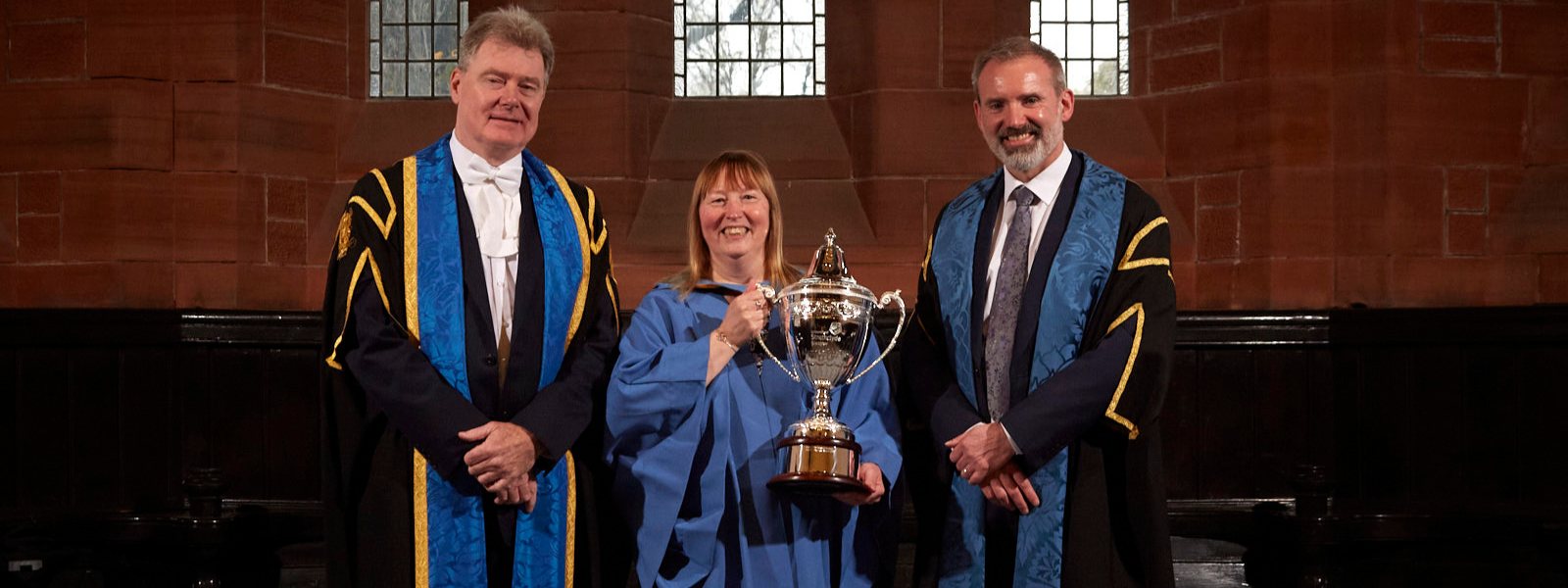Tell us a bit about your background
I was born and brought up in Edinburgh. At school I liked maths and in my final year of secondary school I was introduced to a computer and BASIC programming which I was fascinated with. I asked the careers advisor “What can I do with computers?”, so he looked up computers in his book and suggested computer science (programming) or computer engineering (programming and designing computers). The latter sounded much better, so I studied engineering. I was the first in my family to stay on at school, to go to university and to study engineering. I studied Electrical and Electronic Engineering at Edinburgh Napier University.
Why did you choose Strathclyde?
In my mid-40s, I decided to do an Engineering Doctorate in System Level Integration and the topic was detecting stolen Intellectual Property designs in electronic designs. It was based on Digital Signal Processing (DSP). Strathclyde has a DSP department and are the leading experts in this field, so it was an easy choice. My supervisor was Professor John Soraghan (now retired), and this started a long relationship with the DSP department including returning to give presentations to hiring students directly from the MSc course.
Where are you now?
I am the Head of Digital Systems at Celestia-UK, where we are designing phased array antenna gateways to monitor Low Earth Orbit satellites. My team is responsible for expanding the digital systems capabilities, signal processing algorithms and distributed platforms which augments Celestia-UK’s RF and antenna expertise.
My engineering career started at Marconi in Donibristle, and since then I have had over 30 years of industrial experience in the aerospace, telecoms, security, and space industries, including Senior Design Engineer for GEC Marconi Avionics, Principal Digital Design and FPGA Engineer at BAE Systems and ECS Technology and Deputy Head of Electronics Engineering at Leonardo, an executive role, overseeing the business’ electronic processes, tools, and resource planning. I am also a Royal Academy of Engineering Visiting Professor at Edinburgh Napier University.
It’s also important to highlight my volunteering roles. I joined the Women’s Engineering Society (WES) council in 2006 and I was President from 2013 to 2014. I joined the IET in 2005 and became a Fellow in 2012. Since then, I have been Chair of the Scotland South East (SSE) Local Network (LN), Chair of IET Scotland, Chair of IET Council and Chair of the Engineering Policy Group Scotland, the first female Chair of all these boards. While Chair of IET Scotland I held an Engineering Dinner which was the first to have a top table of all women. Now I’m a Trustee, Vice President and Chair of the Volunteer Engagement Board (VEB). I am also a member of many other Engineering boards and a STEM Ambassador.
What has been the highlight of your career so far?
I’ve had a long career and there have been many highlights, so I’ve limited this to five below.
In 1990 I was the first person in my company to use Field Programmable Gate Arrays (FPGAs). Little did I know at that time how important this would be, but it shaped my whole career and 30 years later I still specialise in this field.
Leaving industry in my mid-40s to do an Engineering Doctorate, where I developed a technique to detect stolen designs within electronic components using temperature sensing. Returning to education and working with other FPGA experts was an amazing experience.
2022 stands out because I became a Vice President of the IET, a position I never dreamed I could achieve. I received an OBE for Diversity and inclusion in Electronic Engineering from HRH Princess Royal at Holyrood Palace, which I feel so honoured to have received and then I became Strathclyde Alumna of the Year, a day my family and I will remember for a very long time.
